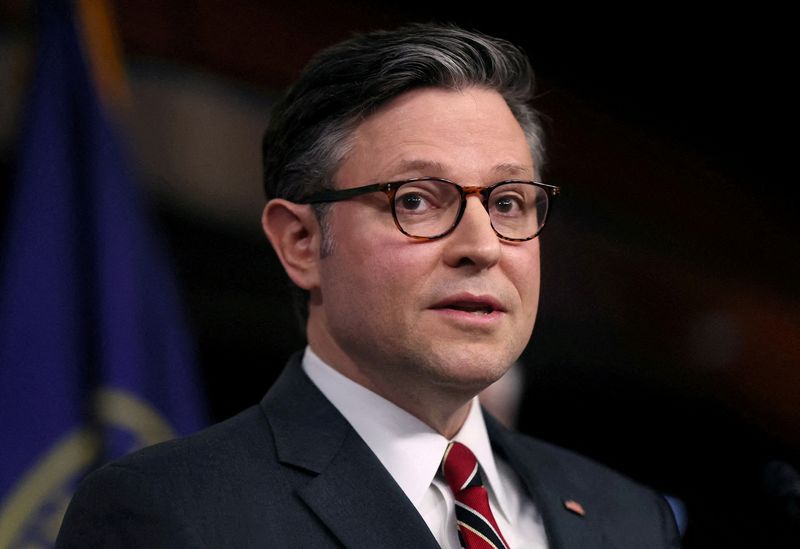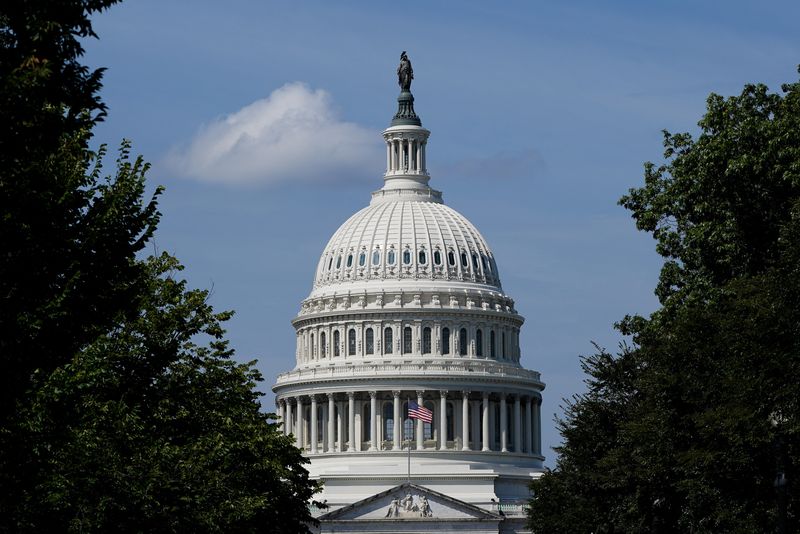WASHINGTON (Reuters) -Hardline U.S. House Republicans on Wednesday asked Speaker Mike Johnson to abandon talks with Senate Democrats on bipartisan spending legislation to avoid a government shutdown and instead implement an automatic spending cut agreed to by his predecessor.
The ultraconservative House Freedom Caucus, which represents about three dozen of Johnson's 219-212 Republican majority in the House of Representatives, promoted the idea in a letter as congressional leaders rushed to complete legislation to avert a possible partial government shutdown beginning early next month.
The hardliners also asked Johnson to update House Republicans on spending talks, claiming that party members were being left in the dark about spending levels and potential policy changes.
"Since January, Speaker Johnson has held regular meetings with members, including appropriators and HFC members, on the status of the FY24 appropriations process," a Johnson spokesperson responded in a statement to Reuters.
Hardliners, whose demands for deep spending cuts and conservative policy changes stymied progress on House Republican spending bills last year, are concerned that Johnson and Democratic Senate Majority Leader Chuck Schumer will soon unveil legislation with spending and policy compromises that they reject.
"We could instead pass a year-long funding resolution that would save Americans $100 billion in year one," 28 members of the hardline bloc told Johnson in the letter.
The letter was referring to a section of the 2023 Fiscal Responsibility Act that requires a 1% across-the-board spending cut, if the federal government is funded by a stopgap measure come April 30. The current fiscal year began on Oct. 1, and the government has since been funded by a series of short-term stopgap bills.
It was not clear whether the suggestion would make a difference to Johnson and other House Republican leaders.

A dozen hardliners shut down the House floor in January to protest Johnson's framework spending agreement with Schumer. The speaker responded by defying the group in a public statement.
Funding is due to run out on March 1 for some federal agencies, including the Department of Transportation, while others like the Defense Department face a March 8 deadline.
